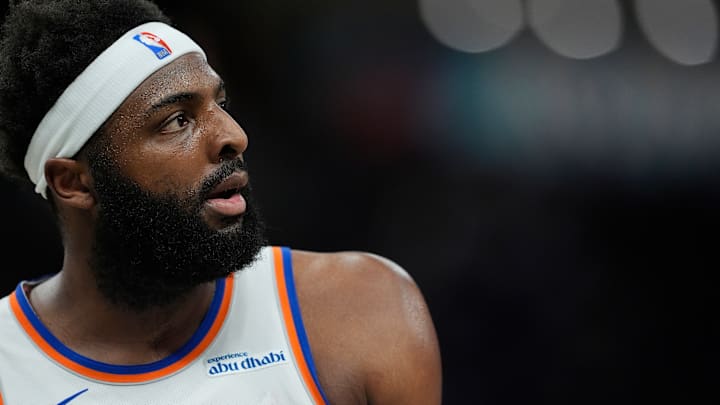The Knicks' front office has done an exceptional job of building a contender while remaining under the dreaded second apron. That said, they have extensions for key rotation players coming up. The roster is going to get more expensive, and if they want to avoid the crippling penalties that come with going over the second apron, it might mean trading Mitchell Robinson, according to ESPN's cap specialist, Bobby Marks.
Aside from the smart signings that the Knicks front office has made, such as signing Guerschon Yabusele to slightly less than the midlevel exception, which gives them room to add another veteran minimum contract, they also have Jalen Brunson to thank.
Last summer, Brunson signed a four-year, $156.5 million contract extension with New York, giving the Knicks a $113 million discount in potential salary. The selfless move has given the Knicks room to assemble the team they have. But things are going to get more expensive soon.
Mikal Bridges and Mitchell Robinson are up for extensions
Robinson is eligible to sign an extension up to four years worth just over $81 million, which would lock the Knicks' longest tenured player into a deal through the 2029-30 season. Bridges, on the other hand, is also eligible to sign a four-year contract extension, reaching up $156.2 million.
Both Robinson and Mitchell are key members of the Knicks rotation, and it is likely the Knicks would like to keep them on the roster in an ideal world. That said, those extensions would put the Knicks into the second apron after this season, assuming no other major moves are made.
If the Knicks want to avoid that financial chokehold, trading Robinson seems like a logical move. His value has never been higher after the dominant performance he had during the Knicks' playoff run. Still, he has a history riddled by injuries, and trading him may be a safe play.
Do the Knicks even care?
There is also the possibility that the Knicks have always planned to enter the second apron during a three-year window in which they will try to secure a championship for decades.
They knew they would stay under it this season, but there is a chance they got a sign-off from ownership to cross that threshold for the next couple of seasons while they try to compete, before making hard decisions after that, similar to what the Boston Celtics just went through over the last few seasons.
